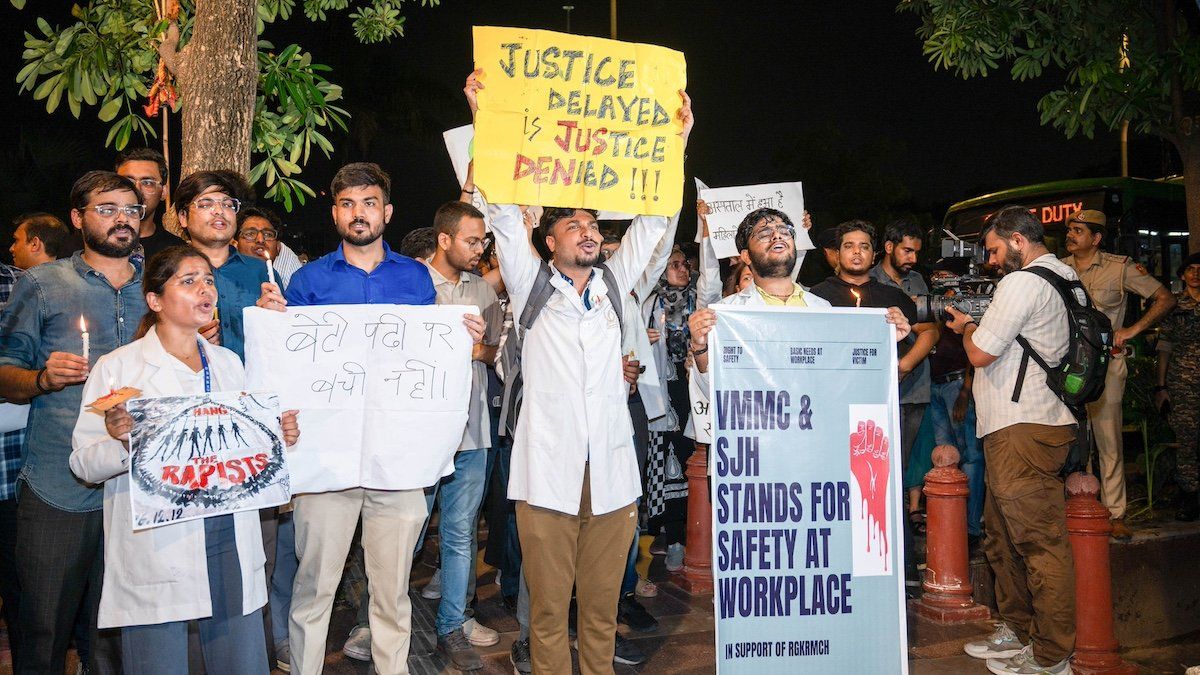Indian junior doctors extended their strike on Sunday, prompting thousands more to march in solidarity followingthe horrific rape and murder of a 31-year-old postgraduate medical student in Kolkata. The tragedy has captured national and international attention, with protesters demanding the government do more to tackle the longstanding crisis of rape and sexual abuse of women and girls.
The victim’s bloodied body was discovered on Aug. 9 at the state-run G. Kar Medical College hospital in Kolkata, in a seminar hall where she was resting after a 36-hour shift. One hospital worker has been detained, but the victim’s parents suspect their daughter was gang-raped.
The crime has ignited protests across India, where an average ofnearly 90 rapes a day were reported in 2022. Women’s rights activists say women remain unsafe despite tougher laws enacted after an infamous gang-rape case in a Delhi bus in 2012. The Indian Medical Association has called for enhanced security protocols for hospital staff.
At recent independence day commemorations,Prime Minister Narendra Modi said “Crimes against women should be probed swiftly, and stringent punishment should be given to those who commit demonic acts.” Modi and Indian authorities have been criticized, however, for ignoring a spate of recent gang rapes in Manipur until video evidence of the crimes emerged.
We’ll see whether this latest incident pushes Modi’s government to act more swiftly – and where the investigation goes from here.
